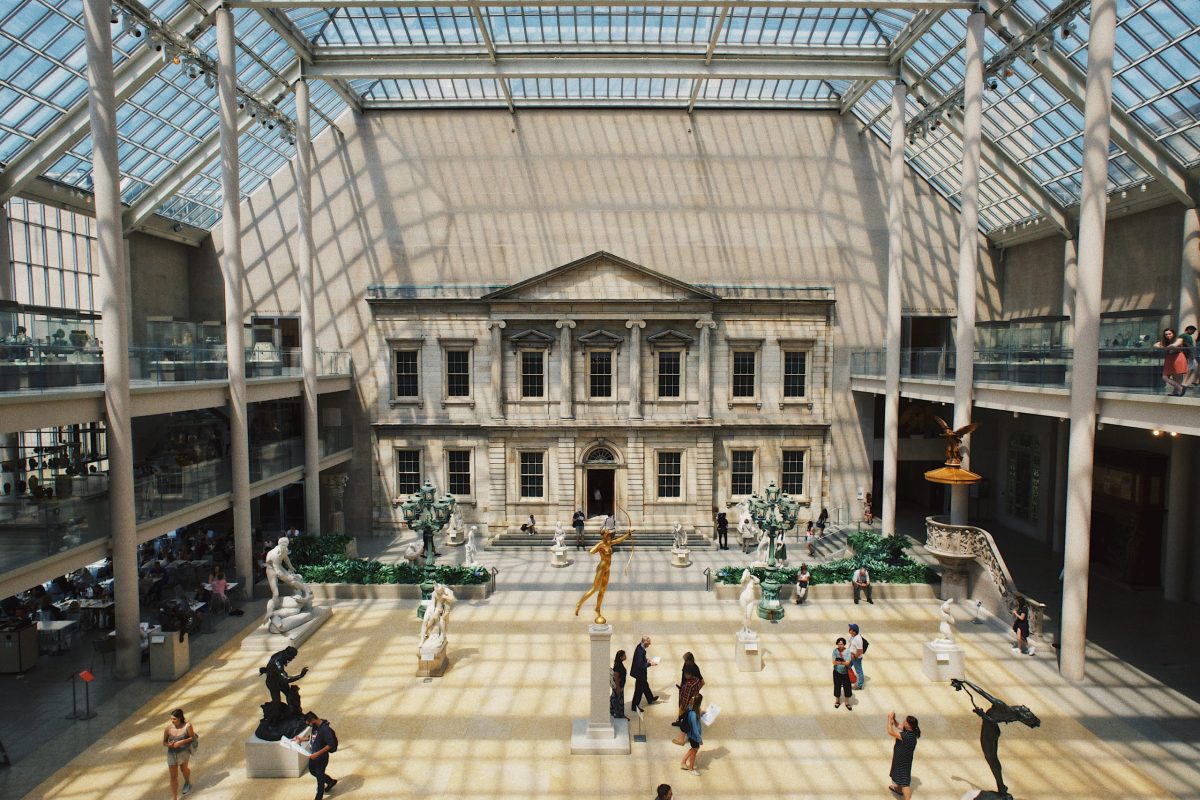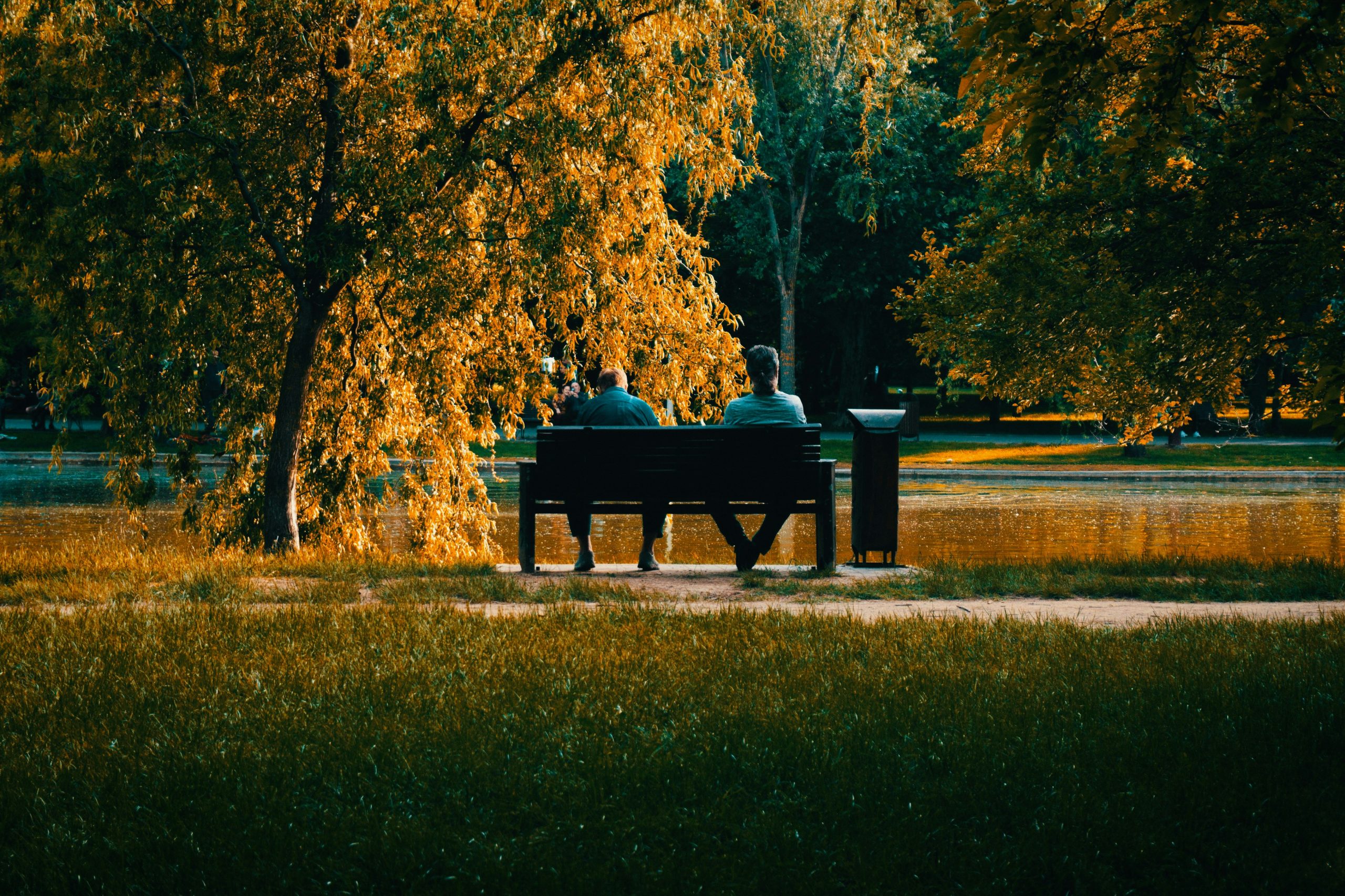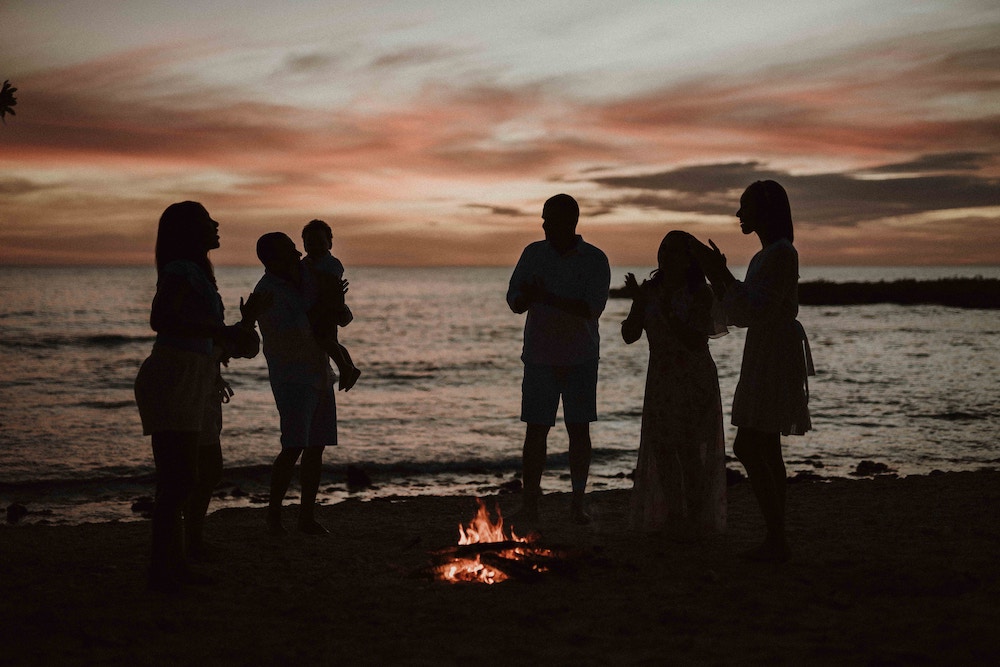Lit Mags
I Am My Best Self on Tripadvisor
"A Visit to Monk's House" from EVIL FLOWERS by Gunnhild Øyehaug, recommended by Kari Dickson

Introduction by Kari Dickson
The literary critic James Wood has called Gunnhild Øyehaug “a Norwegian master of the short story,” and I couldn’t agree with him more. The first story that I read and translated by Gunnhild was “Two by Two,” which ends the English translation of her collection Knots. I was hooked. I have since read everything she has written, and I am frequently asked if I have any unpublished translations of her work for literary magazines—it seems that once you tap into her writing, it easily becomes an addiction.
There is something fresh and energetic about her writing. She surprises in unexpected ways and gives the reader a mental workout, as the stories loop, somersault and pivot. There is often a meta element to her work, in form and/or content. Her knowledge of literature and literary theory shines through, but she always comes at it from an oblique angle, as she does in the stories in Evil Flowers. She is also a master of digression, so you have to follow closely as you hold your breath in anticipation of where and how she will return to her starting point.
“A Visit to Monk’s House” is a perfect example of Gunnhild’s work. The story is layered: it’s as much about Virginia Woolf and a trip to her home, Monk’s House, as it is about the narrator and Alcea, a character who only ever appears on Tripadvisor message boards. We only hear what Alcea has written and how others interpret it. Starting with the very mundane problem of a toilet, the story swoops through yearning, isolation, literature, modern technology and social media, and the intricacies of all these things and what they allow us to do. The juxtaposition of reality versus imagination (often wild and surreal, though less so in this story) is what makes Gunnhild’s short stories so playful and intriguing. The chronology of the plot is often short and simple, but the universe of the story is exploded and enhanced by association and stream of consciousness. At the end of “A Visit to Monk’s House,” we are left wondering what actually happened, and perhaps set off on our own interpretations. In this way, the story lives on.
I, for one, now also want to visit Monk’s House, and seek out the privy (as the English National Trust calls it)—and whenever Virginia Woolf is mentioned, I will smile and think of a toilet, the association forever embedded in my mind.
– Kari Dickson
Translator of Evil Flowers
I Am My Best Self on Tripadvisor
Gunnhild Øyehaug
Share article
A Visit to Monk’s House by Gunnhild Øyehaug
Alcea was the first to write on Tripadvisor. She wrote that she was planning a little visit to Monk’s House, the home of Virginia and Leonard Woolf, in Rodmell, 4.8 kilometers south of Lewes, in East Sussex, England. However, she had a bladder problem and so didn’t dare travel until she knew what toilet facilities were available at the house. Because of her bladder problem, there had to be more than one toilet, so she wouldn’t need to stand in a queue if she suddenly had to pee, but it would be worse still if there was no toilet there at all. She had read on the website that there was a toilet outside that visitors could use. Was there anyone who knew what it looked like? She imagined, as it was a house from the beginning of the nineteenth century, that it might be one of those toilets with a carving on the door, a half- moon for example, that it was low under the ceiling, and to the side of the main house, so one might have to walk some way to get there. Or perhaps, Alcea wrote, it was one of those Porta-Potty toilets that were never pleasant to use. She had watched lots of videos on YouTube where people talked about their visit to Monk’s House, ever hopeful that she might catch a glimpse of the toilet.
I ate a yogurt as I sat reading this, and I have to say, I was utterly gripped by the problem. I’ve had a bladder problem myself and know how crucial is it to have a toilet nearby if one is to venture out into the world. But it wasn’t only this identification with her bladder problem that captivated me, it was also how she described her longing to visit the house. For example, she wrote that she had seen people on YouTube walk down a road in the rain, the road to Monk’s House, they were thoughtful and reverential, with only the slightest swing in their arms. She had seen close-up shots of leaves lying in the roof gutters above the winter garden, and leaves lying on the glass roof of the winter garden, a black-and-white cat stalking across the grass. She had seen what the living room looked like, with its stone floor and armchairs and paintings, the stone floor didn’t surprise her, it was not so usual in Norway perhaps, but she had once been to Brittany and stayed in a house with a similar floor, so she was not completely unfamiliar with brown European stone floors. The floor, Alcea wrote, was often cold, so she wondered how they had heated the house, and what they had on their feet when they walked around inside, but she could learn about that later, right now the most important thing was the toilet. And the toilet was not shown in any of the videos she had seen. She so yearned, she wrote, to wander around the house and see everything as it had been when Virginia Woolf was alive. She longed to stand and look at a long-stemmed flower, for example a rose or a hollyhock, sway in the summer breeze, or the rain. It was as though the rain on the grass and Virginia Woolf’s hollyhocks meant the world to her. I’d never seen anyone write anything like it on Tripadvisor, so I was simply enthralled. She longed for the grass around the house and to come out of a room that she had seen on one of the films, and to think Virginia Woolf once came out here, in exactly this way, only now it was her. Here she was, very much alive, and walking through exactly the same door that Virginia Woolf had walked through. She might even be placing her feet in exactly the same places that Virginia Woolf had placed hers, who knew, it was impossible to know for sure, wrote Alcea. But it was the toilet that was most relevant for her, if she was going to be able to do any of this at all, and she would be desperately unhappy if it couldn’t be done, if she had to sit in her own garden all summer and only daydream about Virginia Woolf’s garden, it would just not be the same. She didn’t even have hollyhocks in her garden and she somehow envisaged that Virginia Woolf did, but, Alcea wrote, she might be wrong, as hollyhocks are biennial. And then someone would have had to plant the hollyhocks year after year, and someone else would have had to take over from them, as it was at least two generations since Virginia Woolf died, in terms of the working life of a gardener, that is, if not, the gardener who had planted hollyhocks every other year since her death would now be ancient. Alcea ended by saying: If anyone has any kind of information about Virginia Woolf’s toilet, please reply.
I was not at all familiar with that part of Great Britain, I had not read Virginia Woolf, and I didn’t know if Virginia Woolf’s house had a toilet, in fact, I had never been to Britain, but immediately started to search on Google and wrote that even though I knew the area fairly well, I couldn’t say anything about the toilet facilities, in particular, at Monk’s House, however: the building was part of the National Trust, so one could safely assume that the toilet was of a relatively good standard and not horribly primitive. In addition, I wrote that she would find the email address for Monk’s House on the website, under “Contact Us.” I wished her the best of luck.
A whole day passed before she answered. I remember the day well, nothing happened. I sat and read other posts on Tripadvisor, but it was all so uninteresting, Algarve, Pyrenees, Venice, all I could think about was Virginia Woolf’s toilet. I opened the fridge and saw that there was no yogurt left, so I went to the shop, but was impatient to get home to see if Alcea had answered. I saw some bushes swaying in the wind and thought about hollyhocks. I looked at the grass around my block in a different way when I got home: So that’s what grass looked like! But there was no answer until the next day. Alcea wrote to thank me. She had written to them, but the house was closed for winter, and she assumed that someone would be checking the email, maybe the gardener? She imagined the gardener sitting in Virginia Woolf’s living room in winter, with cold feet, answering emails. She could just imagine what he looked like. He had green Wellington boots and a sixpence cap. It was wet outside and damp inside in winter, and the fact that it was damper now than ever before, not less, was a worry. The gardener had a weathered face, and he sat with the laptop on his lap, and checked the emails that were sent to Monk’s House, and it was strange to know, Alcea wrote, that he existed at all, so many years after the people who had lived in the house had gone, that he could sit there like a point in posterity in his green Wellington boots, which perhaps left wet marks on the brown stone floor as he sat there and answered emails about what the toilets looked like. She imagined that he was thinking: “Well, I guess one can also ask what the toilet looks like,” but what he wouldn’t know was that this was of particular importance to her, to whether she would go there or not, whether she would be able to experience walking around in Virginia Woolf’s garden, and whether she would be able to see everything that she longed to see. He couldn’t know that underlying this rather trivial question about the toilets was a deep yearning.
He couldn’t know that underlying this rather trivial question about the toilets was a deep yearning.
No, I replied, as I didn’t really know what to reply. I regretted it as soon as I hit “send,” why couldn’t I answer any more than “no”? This small no bothered me for weeks, that I had not been able to give a better response, and to say that she had helped me to notice the grass around my block. It bothered me so much that I couldn’t face going on to the page to see if she had replied, but eventually, I had to check, and she hadn’t, instead there was a post with bad spelling from someone who it later transpired was called Emma:
I’ve also thought about going to Monks House, have you been there yet? Can you say a little about what it was like. But I wondered also about what and how the daybed is.
After this, I went onto the site daily to check if there were any answers, but there was nothing. However, several weeks later, there was a post from someone who later turned out to be called Samantha:
Hello, have you been to Monk’s House yet?
So I jumped on as well after a few days, and wrote:
Hello, we’re curious to know how you got on, did you find out if there were hollyhocks etc.?
But there was still no response. All was quiet for months. Samantha, Emma, and I all carried the same worry, why had she not answered? Every time I saw the bush I had noticed on the day that I went to the shop to buy yogurt, after I’d read her post, I reflected on her silence. It was as though it was her blowing from inside the bush. Emma, Samantha, and I all more or less simultaneously sent private messages to one another, where we asked one another what we thought had happened to her. And so our internet friendship began, and quickly became very intense. It turned out that we were all Norwegian, and that we all liked to daydream, which was why we were on Tripadvisor, even though we weren’t actually going anywhere. Soon we were sharing our deepest, most private thoughts and fears and joys. Emma had a death threat hanging over her, one of the students who had been expelled from the high school where she worked had sent an email to her and threatened her, but Emma wrote that even though this was a real threat, the fear that came from inside and prevented one from showing one’s true colors, or doing things one didn’t really dare, was worse. She had been so touched by Alcea’s question on Tripadvisor about Virginia Woolf’s toilet precisely because there was something fearless about it. Samantha countered that it was in fact fear that had prompted Alcea to seek more information on the internet about the toilet, after all, she feared that there was no toilet there at all. And that, in truth, is fearless, to ask for information about what a toilet looks like, said Emma, on the internet, that is, in our small chat group, and I admire Alcea for her fearlessness. I myself had wondered and wondered what she had meant by asking about the daybed, but didn’t dare to ask. Emma had also confessed that she’d been very drunk the night she sat there surfing the internet and found Alcea’s post about Monk’s House, and that was why her post had neither question marks nor periods, and the syntax was a bit odd. She hadn’t meant to get so drunk, but the wine was so good, and it was Friday and she had too many tests to correct that weekend, and on Monday she was going to meet the parents of one of the other students who had sent another death threat. We had replied to this with three laughing faces, both Samantha and I. We were all absolutely certain that if Alcea, as we called her, the Latin term for hollyhocks, was still alive, she would have written an answer on Tripadvisor and told us, because we believed, from what we had read, that she was the sort of person who liked to tell things. Let’s go to look for her, Emma wrote one day, then we can meet in real life, and then we can all go on a trip, together! Yes, wrote Samantha, what a fantastic idea. I agreed, with great enthusiasm.
So we decided to go to look for her in Monk’s House, but we got no farther than Oslo Airport.
Samantha was the first one I met, at check-in, she was wearing light blue denim and had short blond hair, and in a way, that was that. She had a light brown leather handbag and a dark pink backpack, of the Norröna variety, and a blue rain jacket, and a thin purple woolen snood instead of a scarf. Samantha was in many ways a bit like the question she had asked Alcea: direct and straightforward. “Hello, have you been to Monk’s House yet?” We spotted Emma coming toward us from the escalator, we realized immediately that it was Emma, though we of course didn’t know. She was dressed in black, black denim, black leather boots, black trench coat, and a black scarf with tassels, with thin shoulder-length brown hair and a lot of makeup. I can’t quite explain it, but I noticed that something was making Samantha uneasy, and saw the same thing on Emma’s face when she reached us, a kind of twitching in their bodies, as though they recognized each other from their daily lives as soon as they saw each other and had immediately pigeonholed each other.
But the mood was buoyant as we went through security. I hoped, as I stood there sweating in my raincoat, that nothing about me was too disappointing for the other two women, I was a very ordinary man, and I had earphones round my neck. I was wearing blue jeans and sneakers and had a green Norröna backpack, so Samantha and I were more alike on the outside. But I had felt closer to Emma, on the internet at least. I could completely sympathize with her wish to stand naked and fearless in the face of the world. To really feel that I was filled with inner calm and that nothing was dangerous. “‘But when we sit together, close,’ said Bernard, ‘we melt into each other with phrases. We are edged with mist. We make an unsubstantial territory,'” Emma had written to us, it was a quote from one of Virginia Woolf’s novels that neither Samantha nor I had read, and it was how she pictured the three of us in the chat group: we sat close together with sentences, the edges of our bodies enveloped in mist. We three were an unsubstantial landscape. And yet, Emma wrote, we were beautiful.
We were possible only as long as we were on the internet, where we were sentences and our bodies were enveloped in mist.
When I write this now, I realize that it must have been this that made her disappear. We were possible only as long as we were on the internet, where we were sentences and our bodies were enveloped in mist. She, with her black trench coat, must have reacted to our colorful Norröna rucksacks and blue denim. But still, I didn’t think that was enough to forgive the confusion and sorrow that both Samantha and I felt when we went to the duty-free to look for Emma, who we thought had gone to try a Chanel perfume, a green one, as she said she had. There was no Emma there. No Emma at Chanel, Dior, or Versace. No Emma came to the gate. We got the information desk to put out a call and ask her to meet “Elos and Samantha at Gate 23.” No Emma came. When I heard our names, that we were standing by a gate, which was here, it was as though who I really was dissolved into the mist, and I saw that Samantha was feeling the same where she stood; that we were not standing there, that we were not called Elos and Samantha, not like this. We’re not going, are we, Samantha said, and looked at me as she slowly faded into gray before my eyes. No, I barely managed to whisper before the air erased us completely and the gate personnel called for Emma one last time.
I have sometimes wondered if Emma was in fact Alcea. If it was she who wrote the first post on Tripadvisor and commented herself, after I did. If she was playing a game with us, to lure us in and then disappear twice, perhaps she wanted someone to feel that the numbing silence to be found on the internet when someone doesn’t answer is the same feeling as when a traveling companion disappears at the airport. At other times, I’ve wondered if she was killed by one of her students. Neither theory is particularly plausible. But every time I see hollyhocks swaying gently on their long stems in the wind, I’m touched by the feeling of something extraterrestrial and mysterious, as if they had been planted there only to remind me of something.









